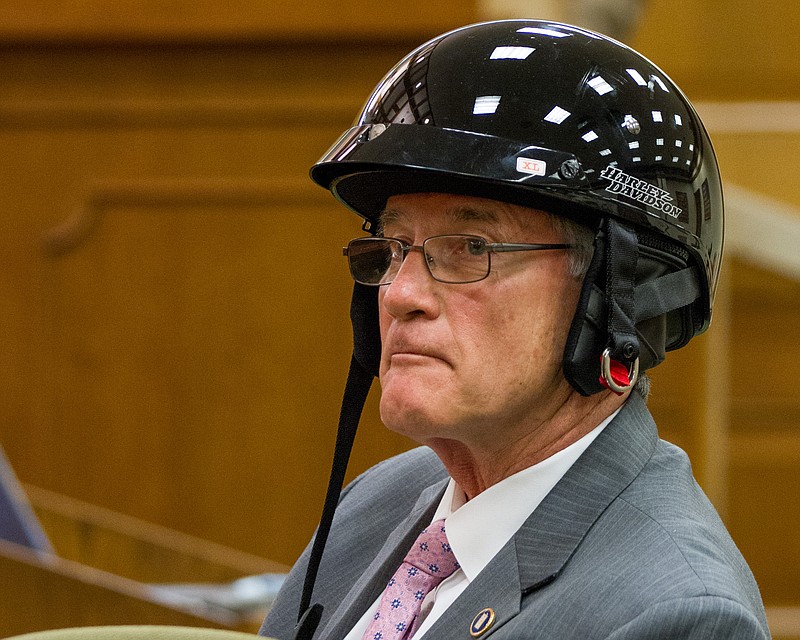One thing is certain if Tennessee lawmakers repeal the state law that requires motorcycle riders over 21 to wear a helmet - head injuries will rise.
Motorcycle riders can make every argument about their freedom, about the wind in their hair and the bugs in their teeth, about their willingness to take responsibility for themselves, and the helmet being just another nail in the certification of the nanny state. But they can't get around the knowledge that deaths and injuries will increase.
A state House subcommittee recently approved a bill that would repeal the law, and the full committee is slated to vote on the bill this week.
Two years ago, a similar bill was submitted, which would have allowed riders older than 25 to ride without a helmet and set minimum insurance requirements for them, but it died in the state Senate.
The statistics for wearing a helmet are compelling but may not be convincing to motorcyclists who believe they'll never have an accident or assert they're willing to accept all responsibility for their accidents.
In 2010, according to the Centers for Disease Control and Prevention, the law saved 46 lives in the Volunteer State and prevented $94 million in economic losses.
Helmets, according to the National Highway Traffic Safety Administration, reduce the risk of death nationally by 37 percent, the risk of traumatic brain injury by 69 percent and save the country about $3 billion per year.
Still, some states have given in and allowed motorcyclists to assume that risk (but which, in too many cases, results in higher costs to the rest of society).
What happened in those states?
* When Kentucky made helmets optional for riders over age 21 in 1998, motorcycle accident fatalities rose by more than 50 percent.
* Michigan, which repealed its mandatory helmet law in 2012, would have had 26 fewer motorcycle crash deaths (a 21 percent reduction) without the repeal, according to the University of Michigan Transportation Institute.
* In Louisiana, fatalities increased 108 percent once the state repealed its helmet law.
Members of the committee considering the bill have heard these numbers and others, including the fact 51 motorcyclists suffered traumatic brain injuries in Tennessee in 2015 and cost the state $700,000.
The Volunteer State's law has been in place since 1967, when its enactment was part of a federal requirement to qualify for federal highway funds. Why would the state choose, after 49 years, to go backward?
